IMF loan conditions: Another power price hike likely by June

There is likely to be yet another increase in electricity tariff by June as the government looks to shed its subsidy burden in line with the demands of the International Monetary Fund.
The government has increased the electricity tariff three times this year: by 5 percent each time.
And yet that was not enough to rein in electricity subsidy: it was topped up by Tk 6,000 crore to Tk 23,000 crore in the revised budget.
With the view to containing the budget subsidies for natural gas and electricity to 0.9 percent of GDP, another increase in electricity tariff would be recommended this fiscal year that wraps up on June 30, finance ministry officials told the visiting IMF staff mission yesterday.
An eight-member IMF staff mission is in Dhaka until May 2 to discuss recent economic developments and policy implementation under the $4.7 billion loan programme. The mission held a separate meeting with the Bangladesh Bank.
Rationalisation of subsidies is one of the programme stipulations, and the government has committed to adjusting electricity prices further to reduce the subsidy component.
"Not all subsidies are good, not all subsidies are geared towards the poor and the vulnerable. If you look at Bangladesh, a lot of subsidies are given for gas and electricity. Who drives cars? Who consumes air conditioning? It is not the poor, it's the rich people. Those people do not deserve the subsidy they are getting in the context of a country going through a fiscal problem," said Krishna Srinivasan, director of the IMF's Asia-Pacific department, in an interaction with Bangladeshi journalists in New Delhi earlier in February.
Blanket subsidies also limit how much the government can support social safety net programmes and infrastructure spending.
Subsequently, the lender insists on providing targeted subsidies and not blanket subsidies or blanket tax exemptions.
A record Tk 81,000 crore was earmarked for subsidy expenses in the original budget for this fiscal year. In the revised budget, another Tk 21,000 crore had to be made available.
But for the common people grappling with a cost of living crisis, a fourth electricity price hike in six months might be a step too far.
In the first nine months of fiscal 2022-23, inflation averaged 8.81 percent, way above the budgetary target of 5.6 percent, according to data from the Bangladesh Bureau of Statistics. In March, inflation stood at 9.33 percent, the highest in seven months.
The finance ministry officials have also informed the staff mission that it would be difficult to meet June's target for net international reserves (NIR), one of the three mandatory conditions for the release of the next tranche of the loan.
The IMF stipulated a minimum NIR of $24.46 billion on June 30.
On March 30, it was less than $22 billion -- and missing the IMF's floor of $22.95 billion for March, The Daily Star has learnt from finance ministry officials involved with the proceedings.
Meanwhile, BB officials informed the staff mission that the central bank is on track to introduce a market-determined exchange rate for all official foreign exchange transactions and interest rate corridor by June, as sought by the Washington-based multilateral lender.
"We have almost arrived at a position to introduce a single exchange rate," Md. Mezbaul Haque, BB spokesman, told reporters yesterday.
The monetary policy that would be announced in July would reflect many of the recommendations such as reporting on foreign exchange reserves as per the IMF'S BPM6 manual, he said.

 For all latest news, follow The Daily Star's Google News channel.
For all latest news, follow The Daily Star's Google News channel. 

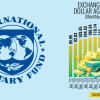
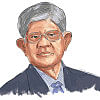

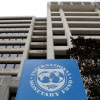
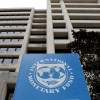

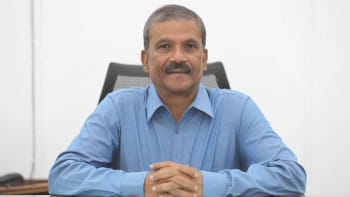
Comments